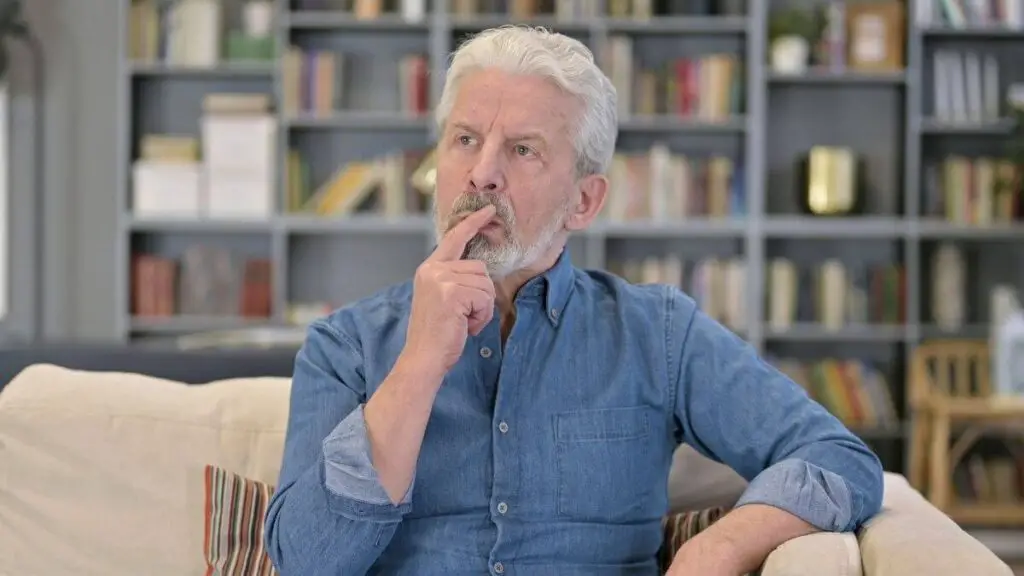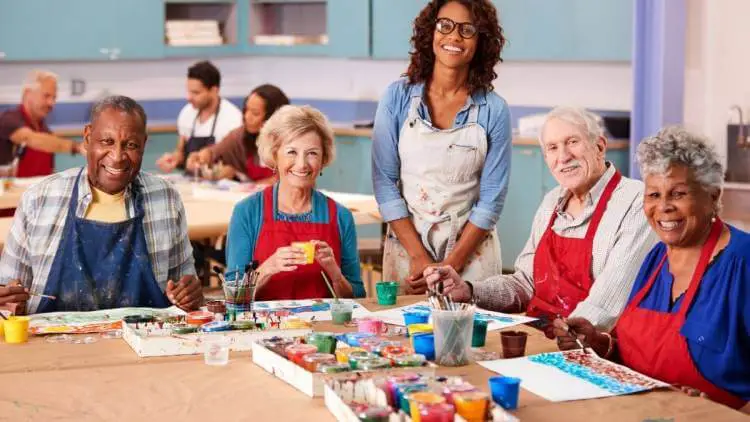Is retirement approaching? Many people have get great retirement ideas during their working years, but once retirement hits, the ideas seem less exciting or they accomplish them quickly, and then they find themselves bored.
With no job and the day’s structure that comes with it, it can be difficult to organize and fill your time. The initial thrill of being finally retired dissipates, leaving only boredom and loneliness in its place. It may seem counterintuitive, particularly when compared to working years, but many retired people struggle with new stress and anxiety.
Luckily, there are many things you can do to make your days busy and interesting. You don’t want to be one of the people who dies soon after retirement, so seize each day of retirement – you’ve earned it!
5 Stages of Retirement
At first, retirement can feel both exciting and overwhelming, but that can quickly change. Once the lawn is in top shape and the garage is cleared out, there may be fewer tasks left to do. Traveling is always a safe option, but packing and unpacking several times a year can be exhausting – never mind the cost!
Before long you start looking for ways to fill time. One activity after another, you may start recalling some old sports, activities you loved doing, or places you loved visiting. Furthermore, with more life experience, other activities can come up and make your day full once again.
Following are normal stages in retirement (adapted from Inspired Villages):
- Pre Retirement – The individual becomes excited at the prospects retirement brings. This stage involves a lot of good emotions, partial nostalgia for coworkers and the workplace, and a lot of planning.
- Early Retirement – Many people experience strong feelings of happiness, even euphoria at the newfound freedom.
- Disillusionment – This stage involves heavy nostalgia for the workplace, worries, and boredom. People usually experience symptoms similar to a culture shock during this stage. The best thing here is to focus on trying different activities to find the ones that bring the most fulfillment.
- Restructuring Days – This stage is a sign that the third stage was successfully resolved. In seeking new sports, activities, and friends, the retiree slowly learns and discovers more themself.
- Stability Stage – This final stage involves fully accepting a new lifestyle. Ideally, this stage should involve activities connected to physical and personal well-being.
These are the principal five stages most newly retired people go through. While some may take a couple of months to go through all stages, some may find that it takes them significantly longer. The key to a successfully reaching the fifth stage (our goal stage) is to be open-minded and to keep trying to find new activities.
What do People do in Retirement?
According to 2019 data from the American Time Use Survey, retirees enjoy 7 hours of leisure time a day. Retirees spend most of their time on the following 7 activities:
- Sleeping – The average person 75 and older spends 9.9 hours sleeping.
- Watching TV – Those 65 and older watch an average of 4.6 hours of television each day.
- Working around the house – Those 65 and older tinker around the house an average of 2.5 hours each day.
- Working another job – Those aged 65-74 work an average of 1 hour per day. Obviously most people are not working 1 hour per day, but this is the average. Many people go back to work to stay busy and to bring in more money.
- Eating – Retirees do not have to rush meals and meals can become social events. They spend 1.35 hours each day eating and drinking.
- Volunteering – Volunteers spend an average of just over 30 minutes per day volunteering or engaged in some civic activity.
- Reading – People aged 65 and older spend about 37 minutes per day readying, the most of any age group.
Exercise is Important
If you can come up with retirement ideas that involve physical movement and exercise you will be doing your mind and body a big favor. Most people reduce their physical activity in retirement, which is unfortunate. That same American Time Use Survey found that there was a modest increase in time spent exercising by new retirees, but that increase quickly drops back down after seniors reach 65 years and older.
Many workers dream of retirement for the sake of rest and fewer responsibilities that come with not showing up to work every day. Once retired, these people may choose a sedentary lifestyle and too few activities, which can negatively affect their well-being.
The average retiree gains up to 4 pounds after entering retirement. This is not too much, but considering the decrease in bone and muscle mass, it may be way more than the visible four pounds. Over time, this extra weight can compromise your health, so going with the following group of retirees is a much healthier option.
Alternatively, many elderly choose a more active lifestyle. Indeed, daily walks, gardening, and occasional hiking can do wonders for your body and the spirit. Physically active seniors are less prone to diabetes, cardiovascular disease, and joint and bone injuries. Overall, your activity level should seek to improve or maintain your fitness goals in the long run and secure a healthy retirement with plenty of energy to enjoy it.
Retirement Ideas
Besides your daily schedule, you should also make weekly and monthly plans as a retired person. This is where hobbies kick in: perfect for your physical and mental health. Hobbies can expand your knowledge, keep your mind sharp, and offer you an entirely new skill set. Common kinds of hobbies that the retired people may choose to practice include:
- Educational hobbies – offering you new knowledge or skills.
- Mentoring hobbies – offering you a chance to share what you already know, educate younger generations, and spend more time in your community.
- Active hobbies – to keep your bones healthy, muscles strong, and joints lubed.
Educational Hobbies
Educational hobbies are the easiest kind to practice. These include reading, writing, and participating in trivia nights with friends. Alternatively, you can choose to take courses or online classes to learn a new language or a completely new skill. Some retirees might even go back to college.
Take Cooking Classes
Taking cooking classes involves your cognitive functions, memory, and fine motor skills. Chopping onion and slicing through a steak may not seem like much, but all these movements, the interplay of smells and tastes, and the social aspect of making food and entertaining can have a lot of benefits on your health.
Take Creative Classes
Taking art classes is a common retirement activity. People have put off the simple things that they enjoy more than the daily grind they’re leaving behind because they didn’t have the time for it. Work demands allowed too little time. Taking art classes, creative writing, or even music classes can exercise the creative part of your brain that may have been neglected during your working years.
Plan Trips to Local Museums and Galleries
Trips to local museums and galleries can also benefit your health and social life. Museums are mostly thematic and can significantly expand your knowledge about history, nature, and sciences. Taking up a trip like this with some friends and sharing a ride adds the social dimension to the activity and ensures no boredom.
Online Classes for Seniors
There are online classes on pretty much any topic today. Cooking with Gordon Ramsey, learning Spanish with native speakers, or learning how to survive in nature from the comfort of your own home are all incredible ways you can expand your skill set.
Coursera is a great place to find online classes, professional certificates, and even degrees from many different universities and companies.
Mentoring
Mentoring is a large part of the life of older adults as many older adults feel the desire to give something back to their community or to younger generations. Seniors usually teach younger people about traditional activities, such as gardening, cooking, taking care of children, and many more. This can be done on an individual bases, or in a more formal setting, allowing you to pass on experience and knowledge, spend more time with people in your community, and learn something in return.
Teach Classes
Teaching is probably the easiest way to contribute to the community. Weekly or biweekly, these classes can include classes on:
- Crafting
- Cooking
- Gardening
- Reading and Writing
- Photography
If your skills are particularly good, you could even get paid for your time by partnering with your school’s adult education program.
Mentor Young Mothers in Your Neighborhood
Mentoring young moms in your neighborhood is another way to spend your time productively. Many young women are afraid of their first labor and taking care of the child. Offering guidance and support and exchanging baby food recipes and ways to save time and money around a baby are necessary skills. The added benefit is time spent around younger couples, learning about their ways, and decreasing the generation gap.
Mentor Younger Generations in Your Former Profession
Offering mentorship to young and aspiring workers can help them reach their dreams. A selfless act, teaching others about tips and tricks of your profession, teaching them how to establish good careers, and finding a balance between work and family is likely to set them on the right path. The respect you get and the sheer enjoyment of helping others are likely to make your day.
Activities
Once the (partially) passive skills are all set, it is time to get out of the chair and out of your way to start moving and enjoy the benefits of physical activity. More than 20% of the retired do not practice any sport or have any physical activity on an average day. Considering the risks of a sedentary lifestyle, it can ruin your health in less than a year. For this reason, consider the following activities or others like them.
Exercise
Taking up a sport such as tennis, squash, or swimming, can help you retain your mobility and skin and joint elasticity and prevent muscle mass loss that comes with aging. Sports will also keep you lean. An hour of sporting activities can help you burn between 300-500 calories, reducing your risk of heart disease, diabetes, insulin resistance, and several other conditions.
You can also join your local gym, take yoga for seniors classes, Tai Chi, etc. Just getting outside for a strong daily walk will do wonders, and don’t let bad weather keep you inside. Find outdoor activities for every season. There are plenty!
Babysitting
Babysitting for your children or others can have a huge impact on your way of life. As children are young and full of energy, they are likely to get you up and move. Moreover, the parents who can now enjoy a few hours of free time a week and children who now get more time spent with them are likely to benefit. You can also turn babysitting into an extra source of income.
Start a Gardening Club
Starting a gardening club is an old cliche-hobby for the elderly. However, suppose you observe someone doing gardening. In that case, you will see that they get all the advantages of moderate physical activity, such as increased mobility, a higher range of motion, and muscle mass preservation. Having your food on the table, preferably organically grown, is a source of pride and achievement that few can afford to enjoy.
Give Your Days and Weeks Structure
To avoid boredom in retirement and secure more mental strength and vitality, it is necessary to structure your day. Think about your goals and dreams and write them down on a sheet of paper. It is easier to mentally organize your ideas and give your day a proper structure. Being a (moderately) busy bee has many perks, both physical and mental health.
- Improving your physical well-being,
- Improving your cognitive skills,
- Improving your social life,
- Helping you discover more skills you’re apt to,
- Reducing risks for chronic conditions, and
- Improving your sex drive.
Final Considerations and Further Reading
Being retired does not mean that you should be bored day in and day out. Quite on the contrary, proper planning and being open-minded can make this the most productive and the richest period of your life. Retirement is the only time we can enjoy all 24 hours in a day, so follow our retirement ideas and make each day count.
Here are some great books to get you started on a path toward a happy, healthy retirement:
- Zelinski, Ernie J. (Author)
- English (Publication Language)
- Foley, Patrick (Author)
- English (Publication Language)
- Bellah, Mike (Author)
- English (Publication Language)
- Gilbert, Fritz (Author)
- English (Publication Language)









